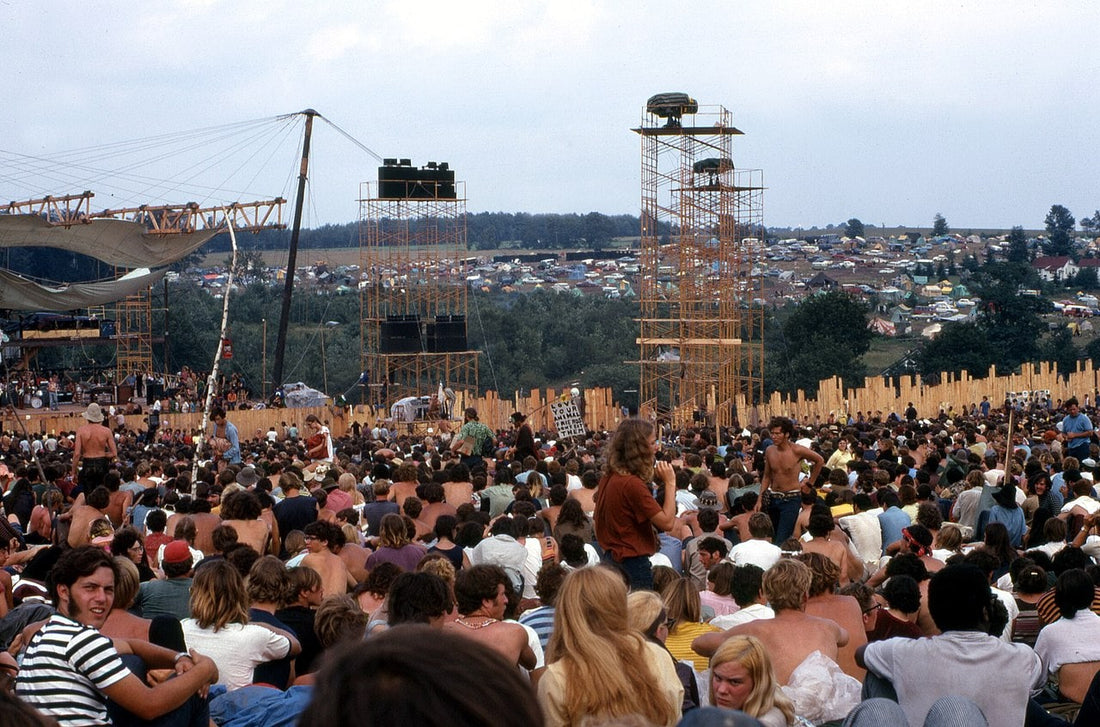In several years of so very many noteworthy 50th anniversaries, two stand out: the July 20th, 1969 landing of humans on the Moon, and the Woodstock music festival. I admit, what made it so different, so special in individual and collective memories, has been my focus for the last several years. And I think I (sort of) finally have it figured out, thanks to the remarkable American Experience documentary on PBS.
It was an amazing time to be alive — absolutely thrilling — and an astonishing time to be an American. We actually put a couple men on the moon in about 8 years, the equivalent of going from zero to the speed of light. We conducted the second of many American wars on the planet, and the first done for no reason but bullheadedness. And the people, such as we were, rose up in objection, but not before millions of pointless deaths (Allen Dulles strikes again, intervening in stopping Ho Chi Minh from communicating directly with the American government in 1945). The pride of the moon landing; the shame of Vietnam.
That summer of ’69, I was 12 years old and my family was traveling in Europe after a year of living in London. We had moved there, according to mother, to save my father from a nervous breakdown — he was that upset about the American presence in Vietnam. When “we” landed on the moon, we were at his brother’s apartment in Budapest, seeing the telecast, uninterrupted.
A few weeks after, my mother and I flew back from Nice, France via a few days in London (while my brother Bob and father drove to Rotterdam to bring our Volvo 145S back on the SS United States). We were met at JFK airport by my brother Peter, who, I was told, had just driven down from seeing the very end of a music festival (from a great distance away).
But it wasn’t until the following spring that I learned what he had almost seen.
I bought the triple-album. I bought a t-shirt. I bought the myth. But it would take years before I grasped that Woodstock really was different. Three days of, quite literally, peace and love and music (and rain and mud and all kinds of logistical problems — but no unpleasantness). I’ve recently discussed it with a good friend who was there, but the real clues came from the PBS doc. I attribute it to a couple things I’ve found out.
The first, and probably the most important, was the security force. There were no police — either on-duty or rent-a-cops. No police for nearly half-a-million people — security, to the extent that it was there at all, was provided by a commune called the Hog Farm. The promoters sent people to every festival in the preceding year and saw clashes between attendees and security, including cops beating concertgoers bloody. With 100,000 people expected, something unique was called for. It was an inspired choice to ask the Hog Farm to do it.
A commune nominally run by Hugh Romney, AKA Wavy Gravy, they weren’t aware that they were being looked to for security until they arrived at JFK. Quoting Wikipedia: “When asked by the press what kind of tools he intended to use to maintain order at the event, his response was ‘Cream pies and seltzer bottles.’” They were 85 people — ultimately having to corral nearly half-a-million. Romney called his people a “Please Force”, as in “Please don’t do that; consider doing this instead.”
When people would come for aid on an LSD adventure that had gone south, they would be comforted until their crisis was past. And then they were sent to comfort the next person coming in for help.
And as it turned out, that’s all it took. No threats; just friendly faces.
Part II – Wallkill to Bethel



